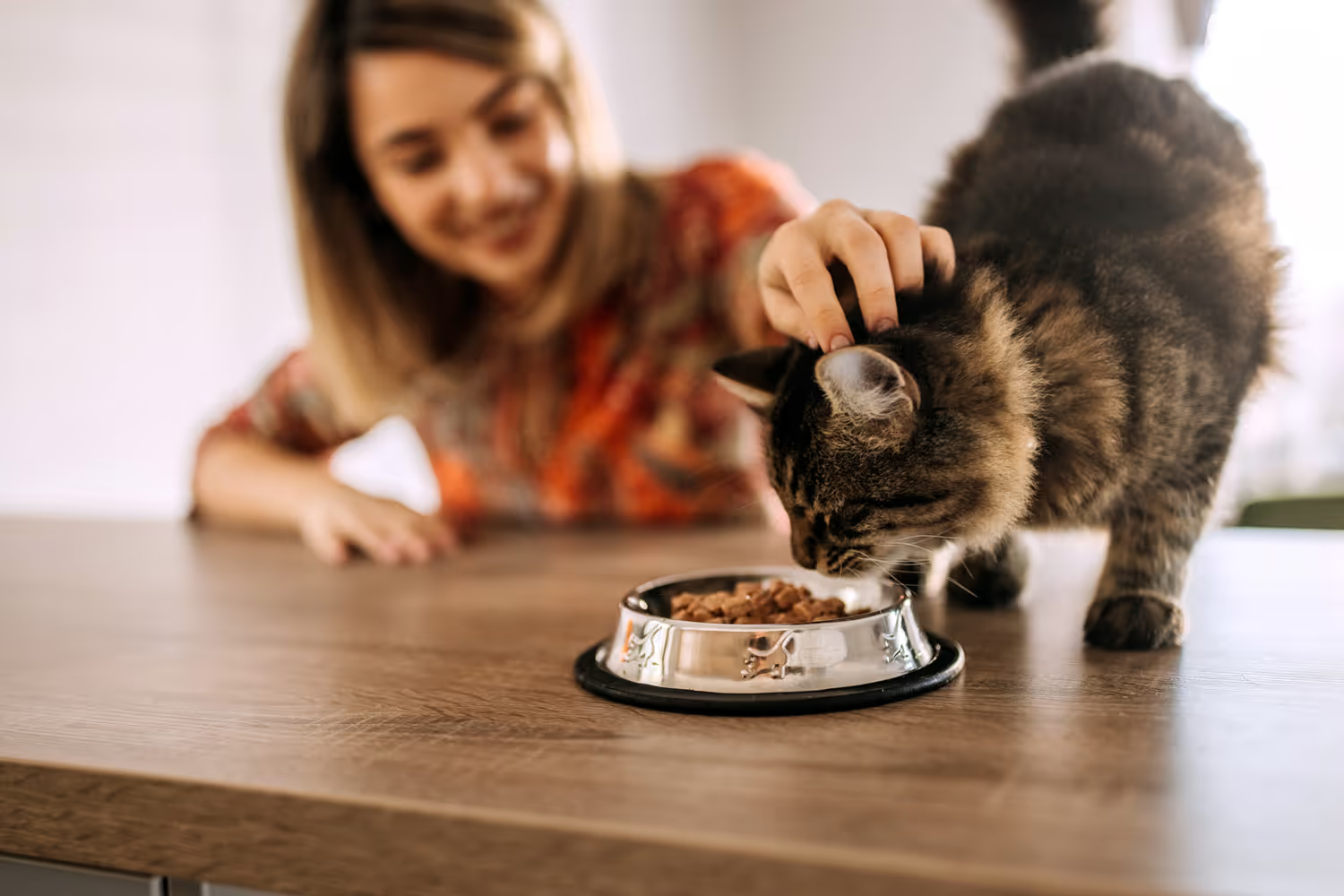Should You Change Your Cat’s Diet in Winter? Here’s What the Experts Say
.avif)
Feeding habits can shift during the colder months. Here’s how to adjust your cat’s winter diet without overdoing it.

Winter doesn’t just affect your cat’s napping spots; it can also shift how much they eat, how active they are, and what their bodies need to stay healthy. Our Cosy Cat Project is coming to a close, but not before we tackle one last winter essential: feeding. In this final instalment, Breeder’s Choice is shining a light on seasonal nutrition, helping cat owners navigate winter mealtimes with practical, vet-approved advice from Dr Claire Jenkins of VetChat.
“Cats may burn fewer calories if they’re less active in winter,” explains Dr Jenkins. “But they also need energy to stay warm. The goal isn’t to feed more or less. It’s to feed smarter, based on your cat’s individual behaviour.”
If you’ve noticed changes in your cat’s appetite or energy this season, here are five expert tips to help support their health through winter:
Don’t Automatically Feed More
Not all cats need extra food in winter. Some become more lethargic, which means fewer kilojoules burned. Instead of guessing, monitor your cat’s weight and body shape regularly. Feel for the ribs and waistline, and make small changes based on what you see, not just what they seem to want.
Prioritise High-Quality Nutrition
Winter is an ideal time to focus on complete, balanced diets. Look for food rich in high-quality protein and omega fatty acids to support energy levels, immunity and coat condition during the cooler months.
Watch Winter Weight Creeping In
It’s easy to overdo treats when you and your cat are both hibernating indoors. Try functional treats that offer health benefits, such as the Breeder’s Choice range, and reduce regular meal portions slightly if you’re adding extras.
Warm Up Mealtime
Older cats or fussy eaters may be more receptive to food served at room temperature or slightly warmed. Feeding during the warmest parts of the day can also make meals more appealing and help support digestion.

Keep Fluids Flowing
Many cats drink less in winter, which can impact kidney function and digestion. To boost hydration, consider mixing a little water into their food or increasing the amount of wet food in their daily diet.
“Winter is the perfect time to check in on your cat’s routine,” says Dr Jenkins. “Even subtle changes in weight or appetite can be an early sign that something’s shifted and it’s much easier to make small tweaks now than reverse a problem later.”
About the Cosy Cat Project presented by Breeder’s Choice
Running throughout June and July, the Cosy Cat Project is a winter wellbeing initiative from Breeder’s Choice, offering expert-backed tips, media releases, blogs and social content to help Australian cat owners support their pets during the colder months. Whether you’re managing your cat’s weight, skin health, joint care or seasonal diet, we’re here to help you create a cosier, healthier winter for your feline companion.
Disclaimer: This article is intended as general advice only. Always consult your veterinarian for personalised recommendations based on your cat’s specific needs, age and health condition.
